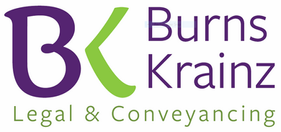Buying a property is one of the biggest purchases of your life, so it is important to ask the right questions not only to the estate agent but also to your lawyer/conveyancer.
You should consider asking the following questions to the estate agent:
How long has the property been on the market: If a property has been for sale for a long time, ask the agent why the property isn’t selling? Is there a problem with the property that other purchasers may have found? Is the price too high?
Why is the owner selling: Knowing why the owner is selling can be helpful for many reasons for example, if the owner needs a quick sale they may accept a lower price? Or if the owner is in no rush to sell, the negotiating process may be tougher.
Has the property been recently renovated: If the property has had a recent renovation or major works carried out, it is important to find out exactly what has been done, what year, whether the works were council approved and if the vendor holds insurance under the Home Building Compensation Fund.
How old is the property: If the property is less than 6 years old, the vendor should provide you with a copy of the insurance certificate under the Home Warranty Insurance Scheme. This covers any major defect. If the property is older, there may be more upkeep, or even works which need to be carried out, which can be costly. Obtaining a building inspection report is always a good idea and will give you a good indication of the quality of the property you are purchasing.
What is included in the sale: It is important to find out what inclusions and exclusions are in the sale. Is the vendor taking anything with them that would usually be included? For example, if there is a pool, is the pool equipment included.
Services available: It is important to know what services are available to the property such as is it sewer or septic, does it have gas, electricity, town water, telephone or internet access.
How much are the rates: It is important to know how much the council rates are, water rates and if purchasing a unit, the strata levies. This will give you an indication of whether you can afford the ongoing expenses of the property.
Location: Research the location, are you happy with the suburb. Which way does the property face? Is there shops, schools and public transport nearby?
Have any offers been made: The agent may give you an indication of what price the vendor will consider. They should also tell you if there have been any offers and if there has been a lot of interest in the property.
When would settlement be: When does the vendor want to move out of the property, this will give you an indication when completion will take place. They may want a quick sale or may want to delay settlement until they find another property. If there is a tenant in the property, when does the tenancy expire.
Property affectations: Is there any affectations that affect the property. For example, is it in a flood zone, bush fire zone or mine subsidence area. Some affectations may affect the price of insurance.
You should consider asking the following questions to your Lawyer or Conveyancer:
What qualifications do you have: It is important to ensure that the person undertaking the legal work on your behalf is qualified to do so. Are they a qualified Lawyer or a Conveyancer. Don’t be afraid to ask how much experience they have in conveyancing and property law.
Legal fees and disbursements: Always ask the costs, get a quote on the legal fees and disbursements. Unless a fixed fee is given it can be often hard to get an exact quote until your lawyer sees the contract, as the cost of post-exchange property searches can differ between councils. They should be able to give you an exact on the legal fees and a good estimate on the disbursements. Ask them what the maximum cost will be.
How long is the process: You should ask your lawyer to explain the process to you. Your contract will have a settlement date so once contracts have exchanged, you will have to wait until the matter settles. After exchange of contracts, it is very much a waiting game. If you are aware of the process, you will not be surprised, and you will understand exactly what your lawyer is doing to complete your purchase.
Do you handle everything: Ask what the quote includes? Most quotes will include dealing with your bank and some may include arranging for pre-contract inspections such as pest and building. All should include dealing with the matter up until the day of settlement.
This is not an exhaustive list. There are many other matters to consider when purchasing including, can I afford this property? Overall, you should adopt your own research. Each property is different and as it is the biggest purchase of your life, it is important that you are satisfied with the property that you are buying.
For further information please contact

Kristie Krainz
Principal Lawyer
T: 02 49209255

